High School Science for the Horse Lover
I hope this high school science overview helps you develop a plan that fits your passionate learner perfectly!
My daughter’s first college mid-terms are upon her and I’m happy to report that she is both loving equine studies and doing splendidly! You might remember she’s been my “horse girl” for the last 10+ years – and that passion for horses flowed right into her major in college.
In Homeschooling a Horse Lover and Homeschooling High School: Student-Led Courses, I shared a little about how we specifically tailored my daughter’s high school science courses to do three things…
- Meet our state’s college-bound requirements
- Be well-rounded
- Allow for specialized equine study
I’m asked quite often what exactly her science transcript included. So, here’s our version of high school science with a bent toward equine studies.
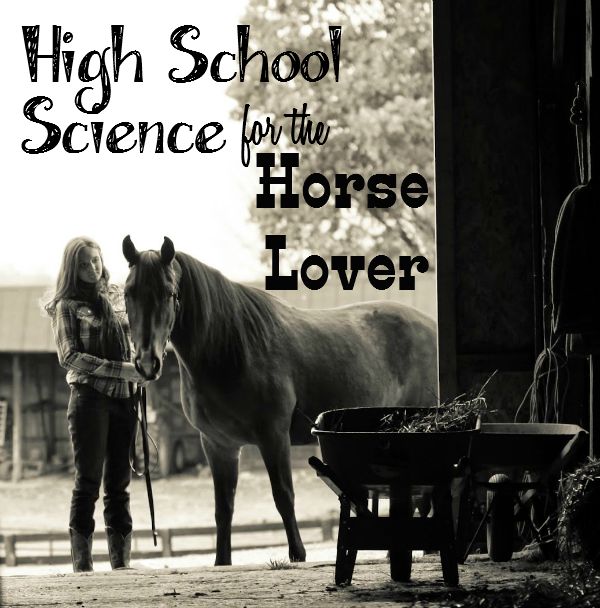
This post contains affiliate links.
High School Science for the Horse Lover
In Kentucky, college-bound students are required to have 3 science credits – one of those including a lab. Unfortunately, the language is slightly vague about which exact credits one should have. If she had her way, my daughter would have chosen no other science besides specific equine studies. But because there really is more to life than horses, I needed to be sure her science education was “complete” while still leaning heavily into equine studies.
Just what does “complete” mean, though? Physical science? Earth Science? Space Science? Biology? Chemistry? Physics? Marine Biology? Anatomy? Agriculture? Equine Studies? Others?
Yes. All of those are important science topics to study! Here’s the thing, though. I don’t know too many students who can do all of those science courses in four years of high school, so everyone has to pick and choose a bit, right? How does one choose??
Luckily, we had covered so much in-depth science in the elementary and middle school years (through unit studies, too), I was confident that she had good baseline knowledge of science. So, I decided to choose courses that I felt best covered a wide range of science topics – while not going too deep into topics in which she had no interest at all (ie. physics) – and put her on track for serious equine studies.
8th Grade: Physical Science
In our homeschool, we begin adding a few high school-worthy courses for transcript credit in 8th grade. While physical science has little to do with equine education, it’s an important science topic with real-life implications. While I didn’t insist on physics, I did insist on physical science.
9th Grade: Biology with Lab
During her freshman year, my daughter worked through a traditional biology course. We were blessed with a complete lab class at the co-op – including all the dissections. Horses obviously aren’t the main focus in a study of biology, but understanding the plant and animal world in its entirety is an important foundation for anyone thinking to focus education on one or more animals.
10th Grade: Chemistry with Lab
Horses weren’t even close to the focus in chemistry, but (yay) we were again blessed with a complete lab at the co-op during Mahayla’s sophomore year. Like physical science, the study of chemistry has many real-life implications. Not to mention, many of those working with horses will surely need a good understanding of chemistry – even if the horseman isn’t going into veterinary school. What, you ask? Horses need medications and optimal feed ratios, insecticides have to be mixed and breeding particulars must be considered… All of these things involve chemistry!
11th Grade: Student-Led Equine Course
By her junior year, I felt like we could delve a little more specifically into my daughter’s horse passion. She covered just about anything and everything having to do with horses – nutrition, first aid, breeding, training, boarding, anatomy, grooming, conditioning, insect control, breeds, careers, and more! Several general agriculture topics were covered, too, like cattle, other livestock, crops, and gardening.
Knowing she’s a responsible learner, I trusted her to design her own course with only a little intervention from me. Our general plan for the year looked like this:
Her responsibilities:
- Each monthly topic had to resource at least one high school level informational book approved by me. (See the list below.)
- Notes were to be taken from the readings.
- One lab activity (in the field usually) needed to be completed for each topic.
- One project to show what you know needed to be complete for each topic.
- She was to keep a written record of daily work and meet with me weekly for accountability.
12th Grade: Equine Work Study
By the time Mahayla’s senior year rolled around, she already had more than enough science credits – as well as most other credits. When an opportunity to work daily with a neighbor who boards and trains thoroughbred horses came up, we said a quick YES! Her time spent was labeled a 3-hour work-study course on the transcript.
Because we had worked hard in the earlier high school years to knock out the required credits for the transcript, we had plenty of elective credits to play with. I was SO thankful she had the time to pour into this amazing apprenticeship!
What if she changes her mind about horses??
In designing my daughter’s high school science plan, it was of utmost importance to me that we didn’t focus entirely on horses. Yes, they were (and still are) her passion, but teenagers and young adults are known to change their minds about their life’s work, right? And, really, whether she ever changes her mind or not, a well-rounded science education will serve her well even outside of her career.
If you’re reading this knowing your own child has a tremendous passion for one thing or another and you’d like to tailor the high school years to pursue that passion, please remember there’s always more to life. Make sure to insist upon a well-rounded education in all subjects while still offering some special opportunities to dive deep into the beloved subject(s).
Horse and Agriculture Books for High School
All of these books were available to my daughter during her self-directed equine & agriculture course in 11th grade. They weren’t all read cover to cover. Some were. Others were used to help in research on particular topics.
Other posts you might like:




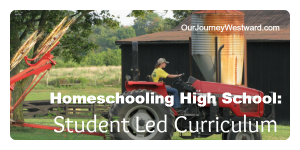

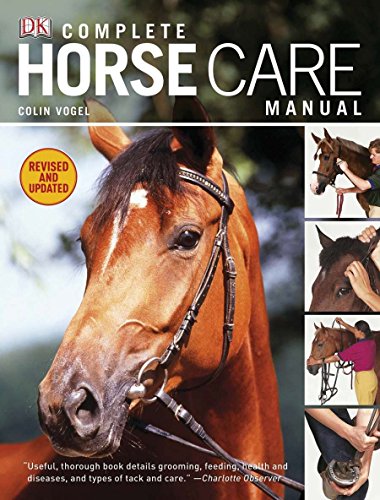







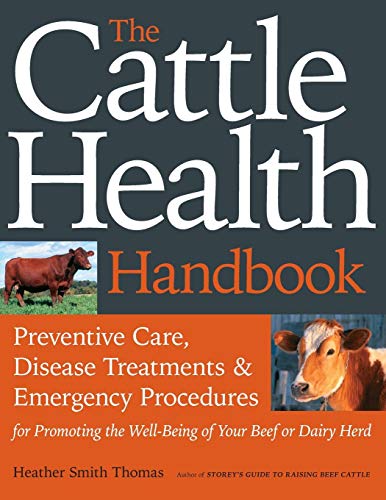
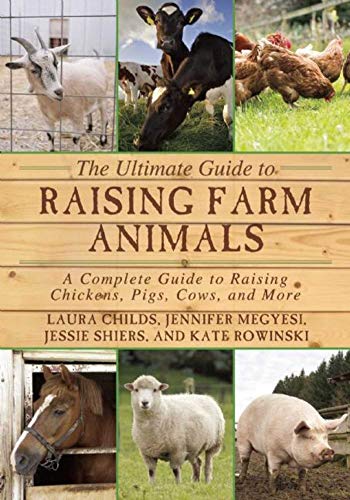

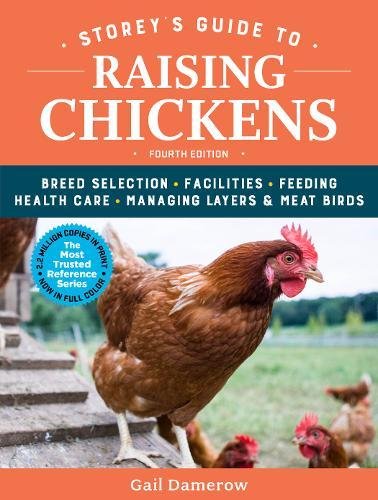








I had read your posts about cognitive abilities last year while researching ways to help my kids (specifically my 10-year-old son) learn more easily. I’m still referring to some of the info you shared as we continue addressing his needs. Thanks!
But imagine my surprise to see that your blog popped up again today while I was looking for alternatives to traditional science courses for my daughter as she enters high school, since to date, science is her least favorite subject. I started by reading your post about tailoring science for your son, a fellow non-science-lover. But I was excited to see this post, since my daughter also loves horses. I had tentatively planned to teach her biology and chemistry (probably using the Ellen McHenry books, some of which she’s really enjoyed in the past) then focusing more on equine studies in the last two years. Reading this post was confirmation that I’m on the right track! Thanks for sharing what’s worked for you, since it’s so helpful to hear from someone who’s “been there”.
p.s. Coincidentally, we live in Kentucky, too, though we’re moving out of state soon.
I love hearing when my little ole’ posts have been helpful or encouraging! Thanks for commenting. 🙂 Blessings on your move to a new state!
Hi! I currently have a 7th grade horse lover, so this was a great find. She is asking me for an anatomy book, do you have a recommendation? Thanks!
Sasha, I asked my daughter and she said she likes either of these books for horse anatomy: A Journey Through the Horse’s Body by Dr. Christina Fritz or Horse Anatomy for Performance by Gillian Higgins. 🙂
Thank you!!! My daughter is in 9th grade and does not want to take regular science courses. She has a love of horses and wants to work with them as a career. I love your perspective and how you brought the equine science into your homeschool. I will be looking into the books you have suggested and may do something similar with her.
I hope you both enjoy it, Heather!
My son went to public, school. Is now an adult with child of his own. I am fascinated with the wonderful education you gave your kids. Both academically as well as strong in character development. I definitely will be using some ideas with my granddaughter Everly. As well as my niece and nephew. Who I nanny for part-time.
Thank you for sharing. Do you by chance have a way you can share that portion of the transcript, like how you wrote it up? My horse loving daughter graduates in May. We’re just above you in southwest IN. She’s been on 4H for 6 years in the H&P club and had some a ton of equine science and Ag stuff throughout those years. She’s also worked at a barn for 5 years and the last two 5 days a week and 3 afternoons with mucking, feeding, cleaning, and caring for anywhere from 14 to 8 horses. She’s not 100% on what to do college wise so we’ll probably go to the local community college and get the basics out of the way while she figures how to become the horse/ people trainer she wants to be.
Hi Kelly! I’m sorry, but I don’t have that information anymore. It’s very easy to pull all of that into a credit or two with a title like “Agricultural Science” with a description that lists all of the things she’s participated in and studied. Good luck!